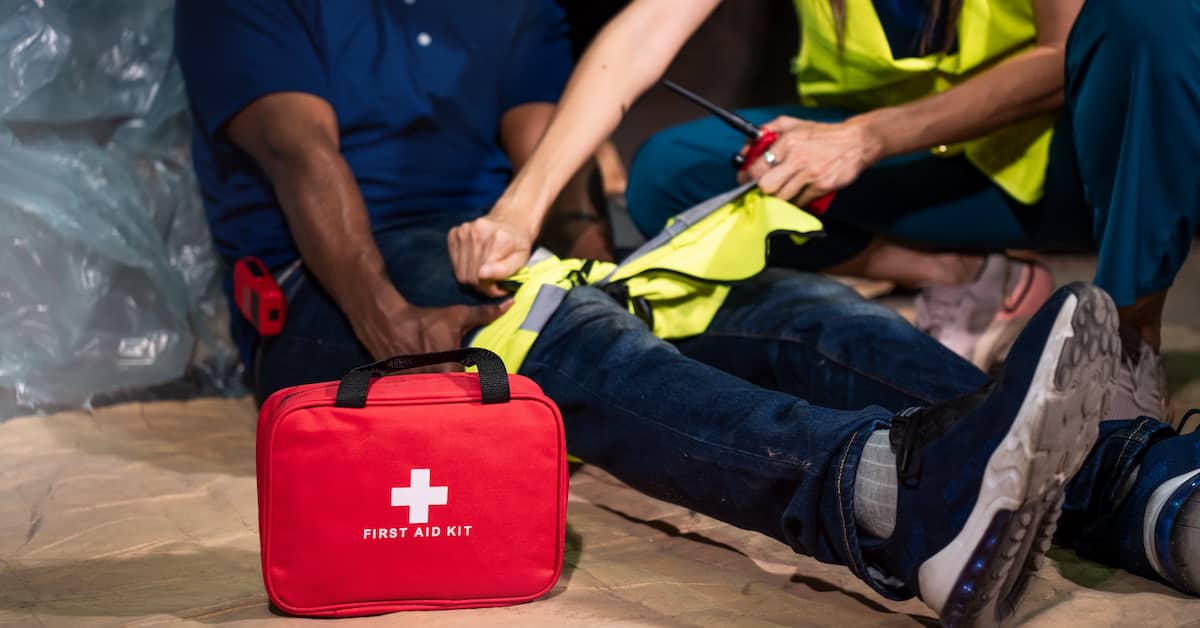
Is It Hard to Win a Wrongful Death Lawsuit?
After losing a loved one in an unexpected accident, filing a wrongful death lawsuit is probably one of the furthest things from your mind. You and your loved ones are likely struggling with grief and trying to navigate the many financial, emotional, and logistical challenges that come with suffering a death in the family.
If your loved one’s death was caused by the negligence of another, it is important to explore your legal options as soon as possible. A wrongful death attorney can evaluate your case, determine your right to compensation, and explain what is involved in making a claim—including any challenges you might face.
Depending on the circumstances, a wrongful death lawsuit can be difficult to win. Choosing an experienced attorney is essential for minimizing the difficulties and increasing the likelihood of a favorable result.
Burg Simpson represents families in wrongful death claims in Denver and throughout Colorado. Call 303-792-5595 today for a FREE and confidential case review.
What Is Defined as Wrongful Death?
In Colorado, a death is defined as wrongful if “the death of a person is caused by a wrongful act, neglect, or default of another” (see Colorado Revised Statutes § 13-21-202). A wrongful death claim may be pursued in any situation where, had the decedent survived the incident, they would have had grounds for a personal injury lawsuit.
You may have a viable wrongful death claim if your loved one died as a result of any of the following:
- Car Accident
- Truck Accident
- Motorcycle Accident
- Construction Accident
- Defective Product
- Unsafe Premises
- Ski Accident
- Medical Malpractice
- And More
If you suspect negligence was a factor in your loved one’s death, do not hesitate to speak to an attorney as soon as possible. A knowledgeable lawyer can assess the details of your case, determine the viability of your claim, and advocate for you and your family.
How Does a Wrongful Death Lawsuit Work?
Only certain individuals may file a wrongful death lawsuit, and the timing varies depending on their relationship with the decedent. In the first year, only the decedent’s spouse may pursue legal action (although the spouse may consent, in writing, to have the child or children of the decedent join the claim). The right to file suit in the first year passes to a “designated beneficiary” (as defined by Colo. Rev. Stat. § 15-22-103) if the decedent had no spouse or children.
In the second year, any of the following parties can bring a lawsuit for wrongful death:
- The spouse
- A child or children of the deceased
- A designated beneficiary
- The parent or parents of the deceased (if the decedent was a minor or was unmarried and had no descendants at the time of death)
Two years is the statute of limitations for wrongful death claims in Colorado. Surviving family members should seek legal counsel right away to ensure that the lawsuit is filed appropriately and before the limitation period elapses.
Why Choose Burg Simpson?
What Are the Elements of a Wrongful Death Lawsuit?
Compensation is not automatic if your loved one is killed in an accident. For a wrongful death claim to succeed, the following elements must be met:
- Duty of care:
It must be shown that the defendant owed a duty of care to your loved one (i.e., a legal obligation to act reasonably and responsibly to prevent harm). - Breach:
Evidence must establish that the duty of care was breached through the defendant’s “wrongful act, neglect, or default.” - Causation:
The evidence must show that the actions (or inaction) of the defendant directly led to your loved one’s death. - Damages:
Finally, the surviving family members (and/or a designated beneficiary) must demonstrate that they incurred compensable losses as a result of the wrongful death.
Each of these elements can be difficult to prove. For example, what the duty of care entails depends on both the relationship between the victim and the defendant, as well as the circumstances of the incident that led to death. Causation may also be hard to prove, especially if multiple factors may have contributed to the victim’s passing.
What Are the Damages for Wrongful Death?
Another challenge families face in the aftermath of an unexpected death is grappling with the financial burdens. If the death occurred due to someone else’s negligence, these may be included in a wrongful death lawsuit.
Damages for wrongful death may include both economic and non-economic loss:
- Funeral and burial expenses
- Loss of income and prospective earnings
- Grief
- Diminished quality of life
- Loss of companionship
- Inconvenience
- Emotional distress
- Pain and suffering
Non-economic damages in a wrongful death claim are generally capped at $250,000 (plus inflation). This cap does not apply if a wrongful death is the result of a “felonious killing” (see Colo. Rev. Stat. § 15-11-803).
Wrongful death claims are brought for the benefit of the survivor(s). A separate claim known as a survival action may be pursued by the deceased’s personal representative for damages sustained by the estate, such as loss of earnings, medical costs, and other expenses incurred prior to the passing of the decedent.
What Is the Burden of Proof in a Wrongful Death Lawsuit?
The burden of proof is a legal term for the standard a party must meet for their claim to succeed. People unfamiliar with the legal system may assume that the burden of proof in a wrongful death lawsuit is the same used in a murder trial: “beyond a reasonable doubt.” However, “beyond a reasonable doubt” is the standard in criminal cases; the burden of proof in civil claims (such as wrongful death) is less stringent.
“Preponderance of the evidence” is the burden of proof in Colorado wrongful death matters. For your case to succeed, you must show that it is more likely than not that the defendant’s negligence resulted in wrongful death. This is far different from “beyond a reasonable doubt,” which requires a much higher level of certainty.
Most wrongful death claims arise from incidents caused by negligence. While a defendant may face criminal and civil liability for someone’s death, the proceedings are entirely separate and the outcome of one case does not determine the other.
Factors That Can Influence the Chances of Winning
Every wrongful death claim is unique. Some cases settle without having to file a lawsuit or go to trial, while others are only resolved through litigation.
A number of different factors can impact the likelihood of a favorable outcome, as well as how hard it is to win a wrongful death lawsuit. These include:
- The availability of evidence:
Strong, compelling evidence is required for a wrongful death claim to succeed. This may include medical records and autopsy reports, statements from witnesses, investigative reports, and more. - Expert testimony:
Testimony from expert witnesses can strengthen your case, helping to establish the duty of care, the defendant’s negligence, causation, and damages. - Comparative negligence:
Defendants may argue that a decedent is partly responsible for the incident resulting in their death. While this does not bar the survivors from recovery entirely (see Colo. Rev. Stat. § 13-21-111), arguments concerning comparative negligence can make a wrongful death case more complicated. - Multiple defendants:
Filing a lawsuit against more than one defendant can also make the case more challenging. Each defendant’s share of fault and liability must be properly assessed to maximize compensation. - The insurance company:
Obtaining compensation for wrongful death generally involves dealing with at least one insurance company. The available insurance coverage, the insurer’s willingness to negotiate, and other factors can all affect the outcome and what is involved in resolving the case.
It is difficult to win a wrongful death lawsuit on your own. Qualified legal representation is essential for navigating the various challenges that may be involved, as well as preparing a strong case.
Meet Our Attorneys
Experienced wrongful death lawyers can thoroughly investigate the incident that led to your loved one’s death, collect all available evidence, consult experts, and prepare a demand encompassing all of the damages you and your loved ones have sustained. An attorney can also file a lawsuit on your behalf and, if necessary, present your case at trial.
How Burg Simpson Can Help
Since 1976, Burg Simpson has been a leader in personal injury and wrongful death litigation. We have handled cases involving everything from car accident deaths to fatalities caused by dangerous products and medications.
Over $2 Billion in Verdicts & Settlements
Pairing local clout with national strength, we have an in-depth understanding of wrongful death statutes in Colorado and nationwide. In addition to the clients who choose to hire us, other attorneys often entrust complex matters to our award-winning trial lawyers.
Often, winning a wrongful death lawsuit is not easy. The damages are often substantial, and defendants and insurance companies are more likely to put up a fight when a fatality is involved. You and your family should be able to focus on grieving, not legal challenges.
Burg Simpson can navigate all aspects of your wrongful death claim, help you make informed decisions, and pursue the full compensation you deserve. Contact us online or call 303-792-5595 for a FREE and confidential case evaluation. Our attorneys serve bereaved families in Denver, throughout the Metro area, and all of Colorado.






